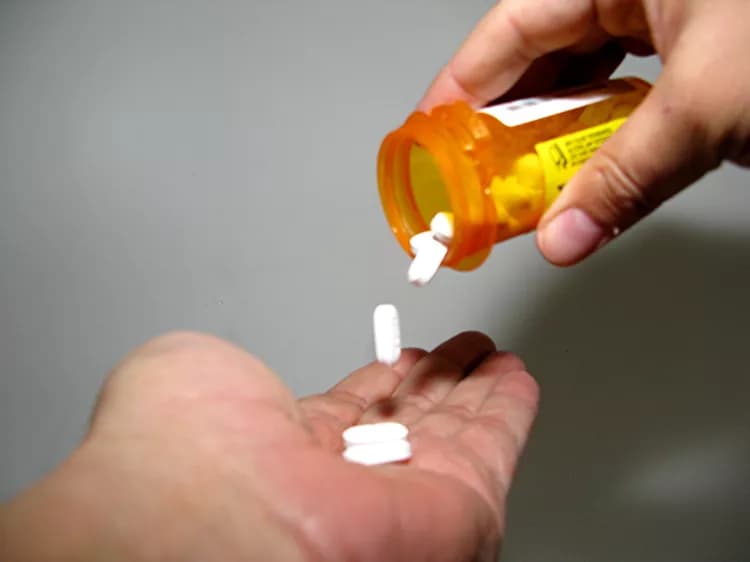
Machine Learning Detects Marketing And Sale Of Opioids On Twitter
Using advanced machine learning, a cross disciplinary team of University of California San Diego researchers developed technology that mined Twitter to identify entities illegally selling prescription opioids online.
Between June and November 2015, some 619,937 tweets containing the keywords codeine, Percocet, fentanyl, Vicodin, Oxycontin, oxycodone and hydrocodone were collected. The findings, published online in the American Journal of Public Health in October, detected 1,778 posts that were marketing the sale of controlled substances, 90 percent included hyperlinks to online sites for purchase.
"An unhealthy use of prescription and non-prescription opioid drugs continues to rise in the United States. Public policy and law enforcement efforts are trying to address this crisis, but closer attention to the potential negative influence of digital technologies is needed," said Tim K. Mackey, PhD, UC San Diego School of Medicine associate professor of anesthesiology and global public health and first author. "Our study demonstrates the utility of a technology to aid in these efforts that searches social media for behavior that poses a public threat, such as the illegal sale of controlled substances."
Mackey and researchers with UC San Diego School of Medicine and Jacobs School of Engineering used a three-step process that involved cloud-based computing to collect large volumes of tweets filtered by keywords, machine learning to isolate tweets related to the marketing of opioids, and web forensic examination to analyze posts that included hyperlinks to external websites.
During the five-month study period, less than 1 percent of tweets mentioning opioids were marketing prescription opioids, and only 46 of the hyperlinks included in those tweets were still live when the team analyzed the data eight months later. However, if the technology were used for active surveillance the data could be used to find more live links and could also be used for surveillance and detection of other health-related illegal online activities, said Mackey.
The Ryan Haight Online Pharmacy Consumer Protection Act prohibits the sale and marketing of controlled substances directly to consumers online. It was passed in 2008 after 18-year-old Ryan Haight of San Diego died after purchasing Vicodin online.
"This technology could help improve enforcement of the Ryan Haight Act," said Mackey. "In addition, social media providers can use it to find or prohibit content that is illegal or violates laws to ensure consumers have a safer experience online."
Forensics researchers connected marketing on Twitter to blogs, other social media platforms, user forms, online classified ads and websites. The majority of sites had foreign addresses, with many linked to Pakistan -- a country recently identified as a source and exporter of fake, counterfeit and falsified medications, said Mackey.
"The online sale of controlled substances is directly prohibited by federal law. However, social media appears to act as a conduit for increased risk to substance abuse behavior," said Mackey.
An interactive map of study findings is available here: https://www.google.com/maps/d/u/0/edit?mid=13qnaNCAKlVJVOezTUObv3Szto1Q&ll=12.624085123383825%2C0&z=3
This study builds on a February 2017 study in the journal Addictive Behaviors, which used the same machine learning technology to filter Twitter content to identify nonmedical uses of prescription drugs and behavioral trends.
Materials provided by University of California San Diego Health. Original written by Yadira Galindo. Note: Content may be edited for style and length.
Disclaimer: DoveMed is not responsible for the accuracy of the adapted version of news releases posted to DoveMed by contributing universities and institutions.
References:
- Tim K. Mackey, Janani Kalyanam, Takeo Katsuki, Gert Lanckriet. (2017). Machine Learning to Detect Prescription Opioid Abuse Promotion and Access via Twitter. American Journal of Public Health. DOI: 10.2105/AJPH.2017.303994
- Janani Kalyanam, Takeo Katsuki, Gert R.G. Lanckriet, Tim K. Mackey. (2017). Exploring trends of nonmedical use of prescription drugs and polydrug abuse in the Twittersphere using unsupervised machine learning. Addictive Behaviors, DOI: 10.1016/j.addbeh.2016.08.019
Related Articles
Test Your Knowledge
Asked by users
Related Centers
Related Specialties
Related Physicians
Related Procedures
Related Resources
Join DoveHubs
and connect with fellow professionals

0 Comments
Please log in to post a comment.